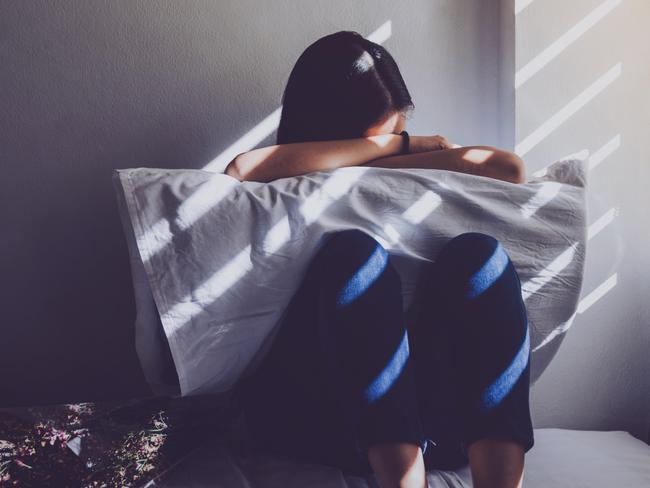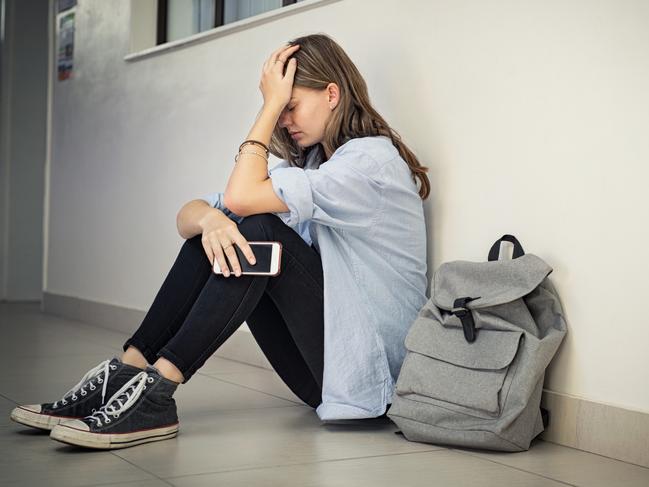Shock number of Melbourne teens suffering anxiety, depression, new study reveals
Almost three quarters of Melbourne teens have experienced significant levels of anxiety or depression by the age of 18, new research has revealed.
Anxiety & Depression
Don't miss out on the headlines from Anxiety & Depression. Followed categories will be added to My News.
Almost three quarters of Melbourne teenagers have experienced clinically significant levels of anxiety or depression symptoms by the age of 18, staggering new research has found.
And the majority of these teenagers were struggling for lengthy periods of time, with two-thirds of sufferers reporting issues during three different times in their adolescence.
The Murdoch Children’s Research Institute led the study and said no other research had ever found such high cumulative levels for teenagers from any country, calling for urgent action “outside our clinics” was required to tackle the “considerable” problem.
MCRI Professor Susan Sawyer said the data “suggests that even the most well-resourced country would struggle to provide adequate treatment if every young person sought help”.
“Beyond clinical care, we urgently need to fund, develop and evaluate preventive strategies that aim to reduce the onset and chronicity of depression and anxiety.”
Researchers surveyed more than 1200 Melburnians about their recent anxiety and depression symptoms every year from the ages of 10 to 18.
They found 74 per cent had “clinically significant” levels at least once, meaning their symptoms had reached the same level patients with a formal anxiety or depression diagnosis would typically record on those questionnaires.

The study, published in the Lancet Psychiatry, reported 84 per cent of surveyed girls had such symptoms, compared to 61 per cent of boys.
Girls with symptoms were also more likely to have them for longer, with 70 per cent reporting issues over three or more annual surveys, compared to 49 per cent in the male group.
MCRI Dr Ellie Robson said while there had been “longstanding concerns of a youth mental health crisis” the team did not expect rates to be so high, or long-lasting, and the results were “striking”.
“For those who did reach high symptoms, the majority reached these symptoms at three waves or more, which is pretty significant and it’s quite concerning,” she said.
She said “quite a low percentage” of symptomatic teenagers went on to report “full remission”.
“And even if they do reach that, they’re likely to reach clinically significant symptoms again afterwards,” she said.

She said increases tended to align with “stressful” times including the transition to high school, exams, the onset of puberty and the Covid pandemic – but the latter was not all to blame.
“We were also surprised that in those who experienced mental health concerns during the pandemic years, that the overwhelming majority had onset of mental health concerns prior to the Covid-19 pandemic,” she said.
She said today’s youth faced unique challenges, including social media and increasing rates of family separation, but increased mental health awareness could also be behind some of the higher reporting rates, so more research was needed.
“No country, no matter how well resourced would be able to provide a clinical response were all these adolescents to seek help,” she said.
Originally published as Shock number of Melbourne teens suffering anxiety, depression, new study reveals



